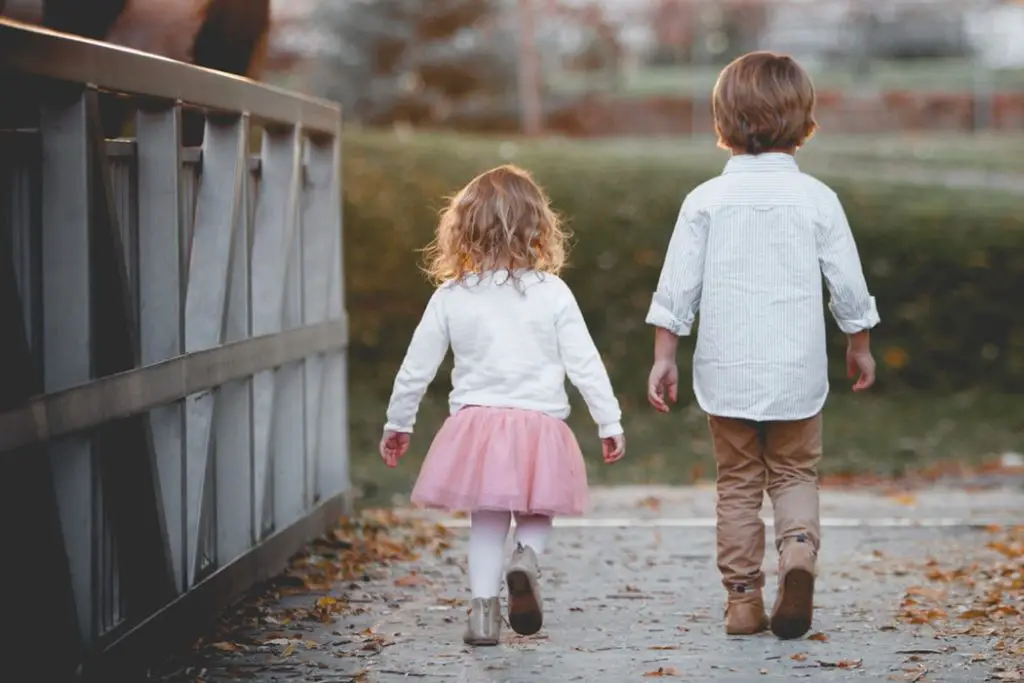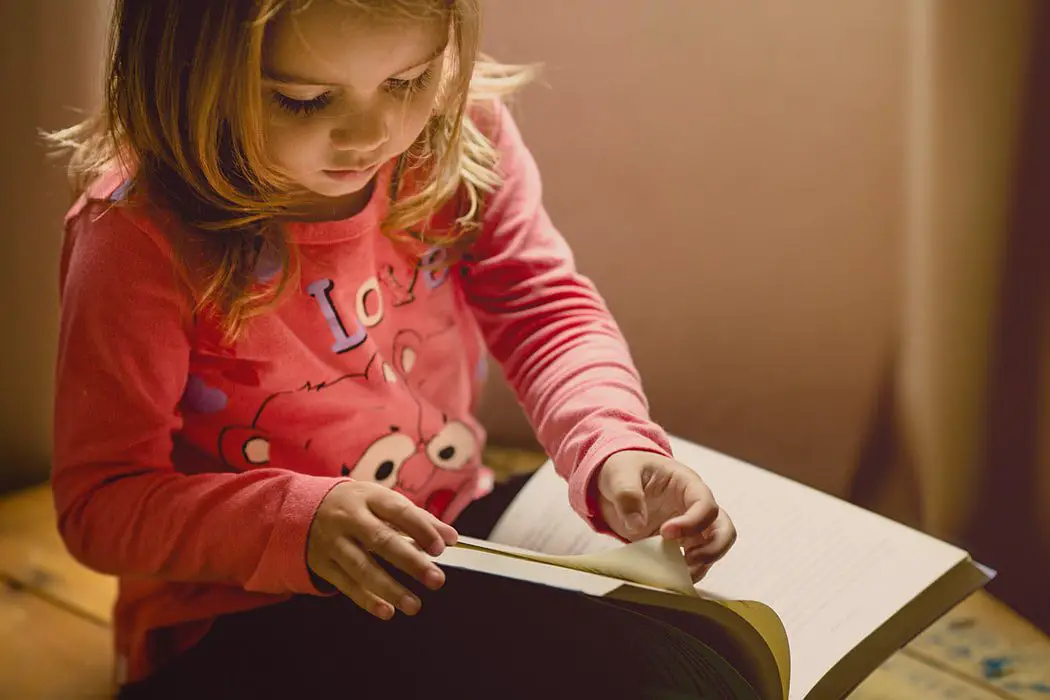[fusion_builder_container hundred_percent=”no” hundred_percent_height=”no” hundred_percent_height_scroll=”no” hundred_percent_height_center_content=”yes” equal_height_columns=”no” menu_anchor=”” hide_on_mobile=”small-visibility,medium-visibility,large-visibility” status=”published” publish_date=”” class=”@media only screen and ( min-width: 800px ) {padding-top: 0px; padding-right: 5px; padding-bottom: 0px; padding-left: 5px; }” id=”” background_color=”” background_image=”” background_position=”center center” background_repeat=”no-repeat” fade=”no” background_parallax=”none” enable_mobile=”no” parallax_speed=”0.3″ video_mp4=”” video_webm=”” video_ogv=”” video_url=”” video_aspect_ratio=”16:9″ video_loop=”yes” video_mute=”yes” video_preview_image=”” border_size=”” border_color=”” border_style=”solid” margin_top=”” margin_bottom=”” padding_top=”” padding_right=”15%” padding_bottom=”” padding_left=”15%” admin_label=”Large Screen text”][fusion_builder_row][fusion_builder_column type=”1_1″ type=”1_1″ layout=”1_1″ spacing=”” center_content=”no” link=”” target=”_self” min_height=”” hide_on_mobile=”small-visibility,medium-visibility,large-visibility” class=”” id=”” background_color=”” background_image=”” background_image_id=”” background_position=”left top” background_repeat=”no-repeat” hover_type=”none” border_size=”0″ border_color=”” border_style=”solid” border_position=”all” border_radius=”” box_shadow=”no” dimension_box_shadow=”” box_shadow_blur=”0″ box_shadow_spread=”0″ box_shadow_color=”” box_shadow_style=”” padding_top=”” padding_right=”” padding_bottom=”” padding_left=”0px” margin_top=”” margin_bottom=”” animation_type=”” animation_direction=”left” animation_speed=”0.3″ animation_offset=”” last=”true” first=”true”][fusion_text columns=”” column_min_width=”” column_spacing=”” rule_style=”default” rule_size=”” rule_color=”” hide_on_mobile=”small-visibility,medium-visibility,large-visibility” class=”” id=”” animation_type=”” animation_direction=”left” animation_speed=”0.3″ animation_offset=””]
[/fusion_text][fusion_text columns=”” column_min_width=”” column_spacing=”” rule_style=”default” rule_size=”” rule_color=”” hide_on_mobile=”small-visibility,medium-visibility,large-visibility” class=”” id=”” animation_type=”” animation_direction=”left” animation_speed=”0.3″ animation_offset=””]
Your childhood affects your love life as an adult.
We all know the life stages. We’re children, we go through an awkward-angsty-[insert emotionally-charged adjective here] teenage phase, and then we’re adults. As adults, many of us eventually start dating, fall in love, and plan on spending our lives in a relationship.
It’s easy for us to separate our childhood from our adult love lives. After all, what do my childhood memories and young experiences have to do with my adult relationship? They’re years in the past.
In actuality, your childhood affects your love life in drastic ways.
In fact, experiences and patterns in your childhood might be causing much of the harm or conflict in your relationship. (And no, I don’t mean the fight to see old, embarrassing family photos). We’re hugely influenced by our upbringing in ways we don’t even realize.
The more we can become aware of these influences, the more we can understand how to use them to benefit, rather than harm, our relationships.
The Benefits of Relationships
We know there are countless benefits to being in a relationship. Not only does it tap into our evolutionary need for belonging, but it creates a strong sense of social connection.
This social connection, in turn, affects our mortality rate by up to 50 percent (which is equivalent to smoking 15 cigarettes a day). We’re less stressed, less likely to suffer from mental illness, and less at risk for getting sick. (Honestly, my fiancé should be paying me for keeping him so healthy.)
It’s easy to see why secure, healthy relationships contribute to our overall life happiness and fulfillment.
So, if we want to be in adult relationships, why is it so difficult for us?
We’re Slow to Learn (and realize how our childhood affects your love life)
Despite our opposable thumbs and ingenuity when it comes to funny TikTok videos, humans still have some evolving to do when it comes to self-awareness. We’re wired to be driven by our emotions, yet our feelings often get in the way of our rational thinking. As a result, we’re slow to learn and name our own emotions, let alone identify where they’re coming from.
This lack of self-awareness in the present prevents us from understanding our childhood’s influence on our emotions or behaviors. As a child, we developed patterns to handle our confusing emotions.
Now, these patterns are so deeply ingrained in us, we don’t even question them.
It’s kind of like brushing your teeth every night. You just do it instinctively before you go to bed (at least, I hope you do). I’d wager to guess that you rarely think about when you learned to brush your teeth, or why it’s beneficial, or how the routine affects your life. You just do it because it’s normal for you.
Your adult behaviors and traditions are equivalent to your tooth-brushing habits. Learned in childhood, solidified over time, and unquestioned now.
Time to open up this (col)gate and gain perspective from the crest.
.
8 Ways your Childhood Affects your Love Life
To understand how your childhood is impacting your love life, you first need to identify what patterns and norms came from your childhood. Humans learn by observing and mimicking others (a bunch of studies looked at this for both humans and our ancestral cousins, monkeys).
Naturally, then, what we observe of our families growing up significantly shapes us. (Note: I will say family throughout this post, but the term “family” can encompass a wide assortment of family constellations).
Here are 8 things that you developed as a child that you need to consider.
.
1. Your communication patterns
Every family communicates differently. In some families, conflict is dealt with in low voices and quiet nods. In others, conflict might involve a lot of yelling and hollering at each other. Or, in a particularly dysfunctional choice, conflict isn’t acknowledged at all.
We all develop our own unique communication styles, but that doesn’t mean we aren’t significantly influenced by our family’s patterns. These differences in communication will inevitably come out in our relationships.
Let’s say Johnny’s family tended to holler at each other when they disagreed with each other. After their loud conversation, everyone would move on and get along fine. But Johnny’s partner, Casey, comes from a family in which yelling was seen as unloving. Suddenly, when Johnny gets angry and yells, Casey thinks it’s the worst thing he could do. Meanwhile, Johnny is just trying to express himself. This difference results in a communication breakdown.
The sooner you can identify your communication patterns, the sooner you can acknowledge them to your partner. Then, together, you can establish communication norms for your relationship.
.
2. Your beliefs and values
We are significantly influenced by the adults who raised us when it comes to our beliefs and values. In fact, many of us can immediately name a recurring value that our parents or guardians taught us growing up.
Even as we grow and develop our own values, we carry these childhood beliefs with us into our adult relationships.
My parents instilled in me a deep emphasis on self-discipline. Not only does self-discipline define my life, but I saw it as a standard by which to determine others, too. Therefore, when my boyfriend wasn’t always the most self-disciplined, I judged him for it. It took many conversations for me to realize that self-discipline was not the most important value, but rather, something that I was raised to believe was more important than others.
It’s difficult to break away from the beliefs and values of our childhood. When it comes to relationships, you need to be aware that other people might have different values.
.
3. Your signs of affection
If we were fortunate to grow up around loving relationships, we spent many hours observing how those relationships functioned. In particular, we noticed how the couple displayed signs of affection.
We inevitably adopted these signs of affection as typical. Then, we brought them into our adult relationships without questioning them.
There are many different ways to show affection. For some people, an act of love might be to be overly helpful and generous, always asking, “What can I get you?” For others, it might be the complete opposite; love might be shown through self-sufficiency so as not to be a burden.
As a result, partners might not feel affection because they are showing it in different ways. The sooner you can get on the same page, the better.
.
4. Your attachment styles
Without diving too deeply into the research behind attachment theories, we can still learn how they affect our relationships. According to psychologists, there are four attachment styles that adults adopt:
- Secure – comfortable with intimacy, not worried about rejection, autonomous
- Anxious – preoccupied, very insecure about the relationship, crave closeness
- Avoidant – uncomfortable with intimacy, values independence and freedom
- Anxious-avoidant – uncomfortable with intimacy and worried about a partner’s commitment and love
It’s not difficult to see how our attachment styles can affect our romantic relationships.
What might be more difficult to see is how our childhood shaped our attachment styles. In fact, our attachment strategies are rooted in the attachments we had as children.
Some of us were fortunate to grow up with secure attachment (in other words, we had parents that were involved, caring, and expressive of their love). This means we’ll be better prepared to be open and trusting in our adult relationships. Not surprisingly, if we grew up with unpredictable, neglectful, or unreliable parents, we will likely feel insecure about our adult attachments.
.
5. Your mindset on money
Despite our secret fantasies about finding and marrying a prince, most people tend to marry within their social class (screw you, Kate Middleton). In fact, this phenomenon is happening so often that it’s contributing to the widening class divide. And it makes sense why it’s happening.
In our childhood, we develop a mindset on money based on the quality of life we have or aspire to have.
Beyond the need for food and shelter, there really is no universal standard for how to spend your money. Some people have no problem dropping hundreds of dollars on clothes, while other people wear the same sweater for ten years but fly to a new city every month. Others might put every spare cent of their paycheck toward retirement.
These differing opinions will come up in our relationships. Especially as two people begin to merge their lives, they will need to question their mindset of money. While you don’t need to agree on everything, you will need to find a balance.
.
6. Your coping mechanisms
Ever heard of the phrase, “let your inner child play”? We all have inner children who may or may not need to play (no cornfields, please). However, our inner children definitely come out with the coping mechanisms we formed in childhood.
These coping mechanisms then repeat themselves in our adult relationships.
Growing up, I adopted a perfectionist mindset to receive affirmation and approval. Without even realizing it, I slipped into a pattern of control to fight off any negative emotions I faced. Whenever I fought with my boyfriend in our first year of dating, I quickly slipped back into a critical state as a need for control.
It took me a lot of work to identify when my “little girl reaction” was coming out. Once I did, however, I could recognize the coping mechanisms that might have served me earlier in life no longer did.
.
7. Your behavioral patterns
Behavioral patterns might seem like a catch-all, but that doesn’t mean it shouldn’t be mentioned. Every family operates very differently with their routines, traditions, and everyday behaviors. We grow up considering what we do as the norm.
As we make our way into adulthood, we continue many of these “norms.” They might be as simple as what time you eat dinner, or as loaded as power dynamics in a family.
For example, my fiancé comes from a family of nappers. Two-hour naps are a regular part of their routine, especially on busy days. My parents, on the other hand, are a few hours away from being insomniacs. These differences certainly come out in our daily lives. At times, we’ve had to give up our behavioral patterns. At other times, we make room for each other’s patterns.
When two people come together with different norms, they need to work to establish a new normal. This process is going to take some patience and time.
.
8. Your outlook on family
Of all the differences in values and behaviors, one particular value deserves its own category: how much importance you place on family.
During childhood, we all developed views on family, love, and what we deserved. Sometimes we made these decisions consciously, but more often than not, they formed without our awareness.
Do you view a relationship as a team? Does family require specific roles? How much priority do you put on family?
It’s critical that you first know what you want from a relationship. Once you have this level of self-awareness, you can be open about what you and your partner want. It can be scary, but with this aspect above all else, you need to be on the same page.
.
Questions to Uncover How your Childhood Affects Your Love Life
Reading a list of 8 ways your childhood affects your love life is step one. To truly benefit from this list, you need to consider your own childhood and how it is affecting your love life.
To do so, you should ask yourself the following questions:
- What patterns of your family are you repeating?
- What example did your family set, and what do you want to take from it?
- What coping strategies did you develop in childhood?
- How does your family dynamic and traditions compare to your partners?
As you think about these answers, be patient with yourself. Childhood can be heavy, and unwrapping it isn’t always fun.
Follow these general principles as you try to untangle your childhood and positively influence your love life:
- Decide what you liked and didn’t like from your childhood
- Be open to other models for family and relationships
- Decide what you want your love life to look like
- Set goals and communicate them effectively with your partner
- Forgive yourself for past mistakes and future ones
.
Conclusion
We often think of our childhood as the distant past. However, your childhood affects your love life in many ways.
Since relationships are essential for our health and happiness, you must consider the ways your childhood might be affecting your current relationship:
- Your communication patterns
- Your beliefs and values
- Your signs of affection
- Your attachment styles
- Your mindset on money
- Your coping mechanisms
- Your behavioral patterns
- Your outlook on love and family
The more you are aware of these effects, the better you can communicate your needs to your partner. Ultimately, you want to create a love life that keeps you smiling and happy.
Is your childhood still affecting you? Consider the questions and post a comment below!
.
[/fusion_text][/fusion_builder_column][/fusion_builder_row][/fusion_builder_container][fusion_builder_container admin_label=”Large Screen follow-up” hundred_percent=”no” hundred_percent_height=”no” hundred_percent_height_scroll=”no” hundred_percent_height_center_content=”yes” equal_height_columns=”no” menu_anchor=”” hide_on_mobile=”small-visibility,medium-visibility,large-visibility” status=”published” publish_date=”” class=”” id=”” border_size=”0″ border_color=”” border_style=”solid” margin_top=”” margin_bottom=”” padding_top=”” padding_right=”25″ padding_bottom=”” padding_left=”25″ gradient_start_color=”” gradient_end_color=”” gradient_start_position=”0″ gradient_end_position=”100″ gradient_type=”linear” radial_direction=”center” linear_angle=”180″ background_color=”#000000″ background_image=”” background_position=”center center” background_repeat=”no-repeat” fade=”no” background_parallax=”none” enable_mobile=”no” parallax_speed=”0.3″ background_blend_mode=”none” video_mp4=”” video_webm=”” video_ogv=”” video_url=”” video_aspect_ratio=”16:9″ video_loop=”yes” video_mute=”yes” video_preview_image=”” filter_hue=”0″ filter_saturation=”100″ filter_brightness=”100″ filter_contrast=”100″ filter_invert=”0″ filter_sepia=”0″ filter_opacity=”100″ filter_blur=”0″ filter_hue_hover=”0″ filter_saturation_hover=”100″ filter_brightness_hover=”100″ filter_contrast_hover=”100″ filter_invert_hover=”0″ filter_sepia_hover=”0″ filter_opacity_hover=”100″ filter_blur_hover=”0″][fusion_builder_row][fusion_builder_column type=”1_1″ type=”1_1″ layout=”1_1″ spacing=”” center_content=”no” link=”” target=”_self” min_height=”” hide_on_mobile=”small-visibility,medium-visibility,large-visibility” class=”” id=”” background_color=”” background_image=”” background_image_id=”” background_position=”left top” background_repeat=”no-repeat” hover_type=”none” border_size=”0″ border_color=”” border_style=”solid” border_position=”all” border_radius=”” box_shadow=”no” dimension_box_shadow=”” box_shadow_blur=”0″ box_shadow_spread=”0″ box_shadow_color=”” box_shadow_style=”” padding_top=”” padding_right=”” padding_bottom=”” padding_left=”” margin_top=”” margin_bottom=”” animation_type=”” animation_direction=”left” animation_speed=”0.3″ animation_offset=”” last=”true” first=”true”][fusion_title hide_on_mobile=”small-visibility,medium-visibility,large-visibility” class=”” id=”” content_align=”center” size=”1″ font_size=”” line_height=”” letter_spacing=”3px” margin_top=”5px” margin_bottom=”-40px” margin_top_mobile=”” margin_bottom_mobile=”” text_color=”#ffffff” style_type=”double solid” sep_color=”#0220ff”]
FOLLOW-UP QUESTIONS
[/fusion_title][fusion_text columns=”” column_min_width=”” column_spacing=”” rule_style=”default” rule_size=”” rule_color=”” hide_on_mobile=”small-visibility,medium-visibility,large-visibility” class=”” id=””]
Comment below with answers, ideas, and more questions, or contact me to collaborate on a future post!
[/fusion_text][fusion_builder_row_inner][fusion_builder_column_inner type=”1_2″ type=”1_2″ layout=”1_2″ spacing=”” center_content=”no” hover_type=”none” link=”” target=”_self” min_height=”” hide_on_mobile=”small-visibility,medium-visibility,large-visibility” class=”” id=”” background_color=”” background_image=”” background_position=”left top” background_repeat=”no-repeat” border_size=”0″ border_color=”” border_style=”solid” border_position=”all” border_radius=”” box_shadow=”no” dimension_box_shadow=”” box_shadow_blur=”0″ box_shadow_spread=”0″ box_shadow_color=”” box_shadow_style=”” padding_top=”” padding_right=”” padding_bottom=”” padding_left=”” dimension_margin=”” animation_type=”” animation_direction=”left” animation_speed=”0.3″ animation_offset=”” last=”false” first=”true”][fusion_title hide_on_mobile=”small-visibility,medium-visibility,large-visibility” class=”” id=”” content_align=”center” size=”4″ font_size=”30px” line_height=”” letter_spacing=”1px” margin_top=”” margin_bottom=”-10px” margin_top_mobile=”” margin_bottom_mobile=”-10px” text_color=”#ffffff” style_type=”single dashed” sep_color=”#022cff”]
EXPLORING YOURSELF
[/fusion_title][fusion_checklist icon=”fa-question-circle fas” iconcolor=”#0216f2″ circle=”no” circlecolor=”#e0e0e0″ size=”18px” divider=”yes” divider_color=”#ffffff” hide_on_mobile=”small-visibility,medium-visibility,large-visibility”][fusion_li_item icon=””]
What patterns from your family are you repeating?
[/fusion_li_item][fusion_li_item icon=””]
What example did your family set, and what do you want to talk from it?
[/fusion_li_item][fusion_li_item icon=””]
What coping strategies did you develop in childhood?
[/fusion_li_item][/fusion_checklist][/fusion_builder_column_inner][fusion_builder_column_inner type=”1_2″ type=”1_2″ layout=”1_2″ spacing=”” center_content=”no” hover_type=”none” link=”” target=”_self” min_height=”” hide_on_mobile=”small-visibility,medium-visibility,large-visibility” class=”” id=”” background_color=”” background_image=”” background_position=”left top” background_repeat=”no-repeat” border_size=”0″ border_color=”” border_style=”solid” border_position=”all” border_radius=”” box_shadow=”no” dimension_box_shadow=”” box_shadow_blur=”0″ box_shadow_spread=”0″ box_shadow_color=”” box_shadow_style=”” padding_top=”” padding_right=”” padding_bottom=”” padding_left=”” dimension_margin=”” animation_type=”” animation_direction=”left” animation_speed=”0.3″ animation_offset=”” last=”true” first=”false”][fusion_title hide_on_mobile=”small-visibility,medium-visibility,large-visibility” class=”” id=”” content_align=”center” size=”4″ font_size=”30px” line_height=”” letter_spacing=”1px” margin_top=”” margin_bottom=”-10px” margin_top_mobile=”” margin_bottom_mobile=”-10px” text_color=”#ffffff” style_type=”single dashed” sep_color=”#0220ff”]
EXPANDING YOUR WORLD
[/fusion_title][fusion_checklist icon=”fa-question-circle fas” iconcolor=”#0216f2″ circle=”no” circlecolor=”#ffffff” size=”18px” divider=”yes” divider_color=”#ffffff” hide_on_mobile=”small-visibility,medium-visibility,large-visibility”][fusion_li_item icon=””]
What are the common signs of affections that we use to demonstrate love?
[/fusion_li_item][fusion_li_item icon=””]
How influential is the socioeconomic class of someone’s upbringing in determining their future socioeconomic class?
[/fusion_li_item][fusion_li_item icon=””]
Can people change their attachment styles, and if so, how?
[/fusion_li_item][/fusion_checklist][/fusion_builder_column_inner][/fusion_builder_row_inner][/fusion_builder_column][/fusion_builder_row][/fusion_builder_container]








